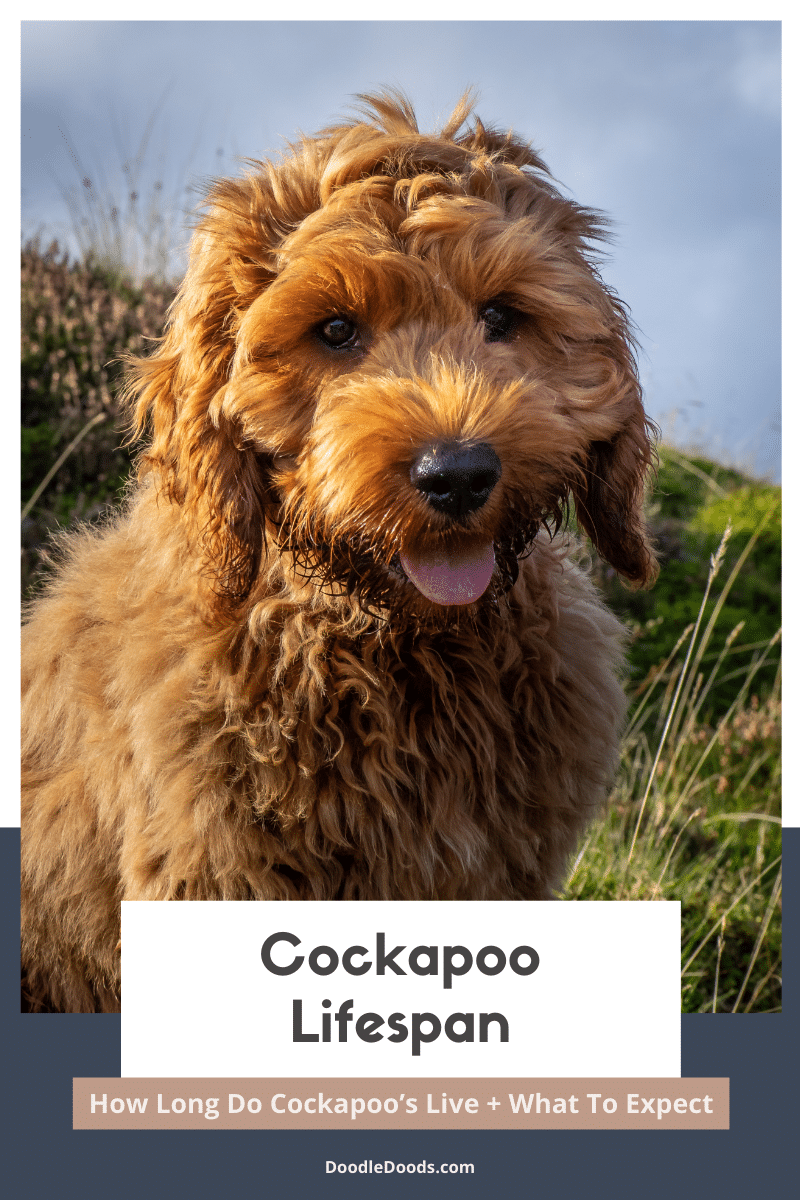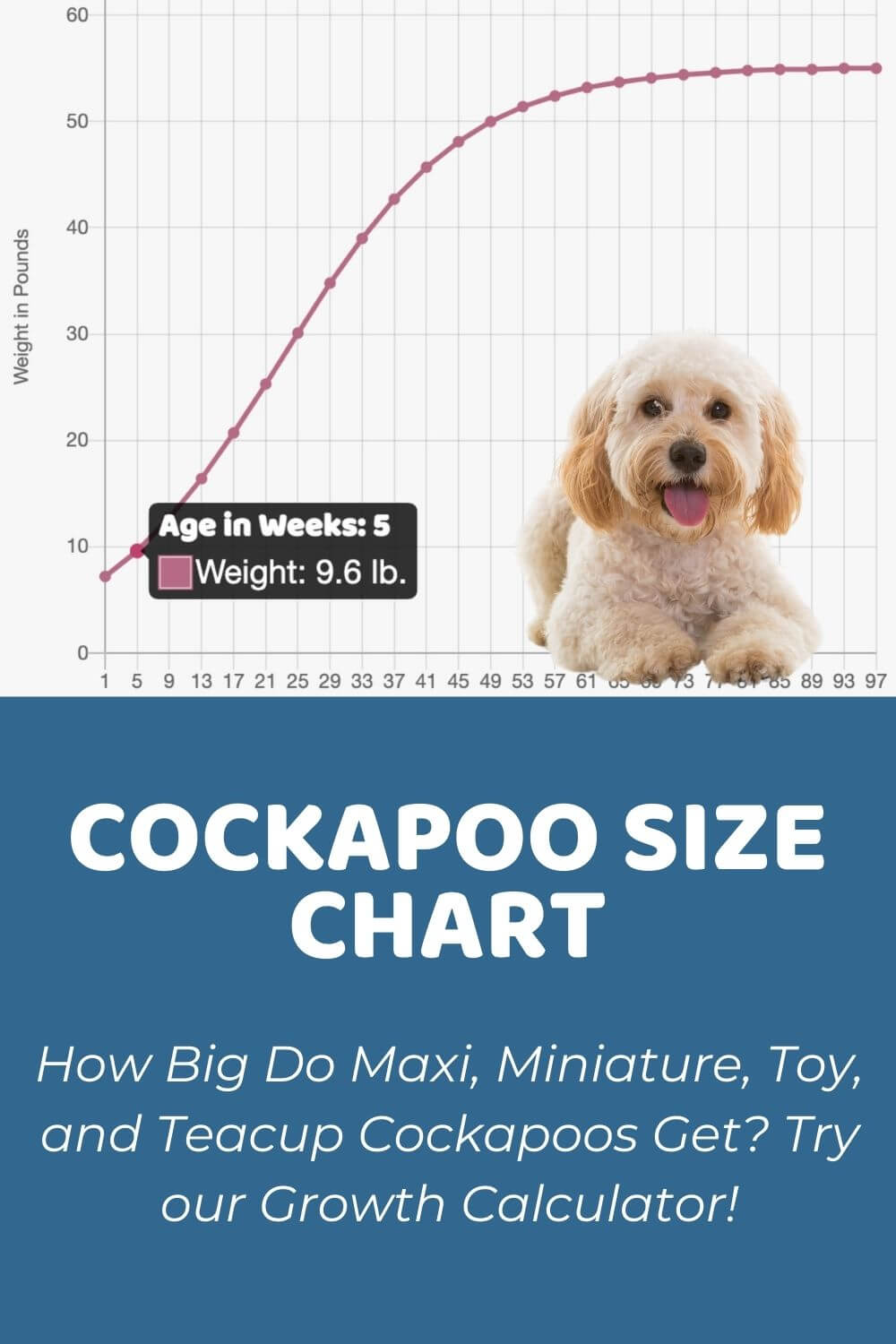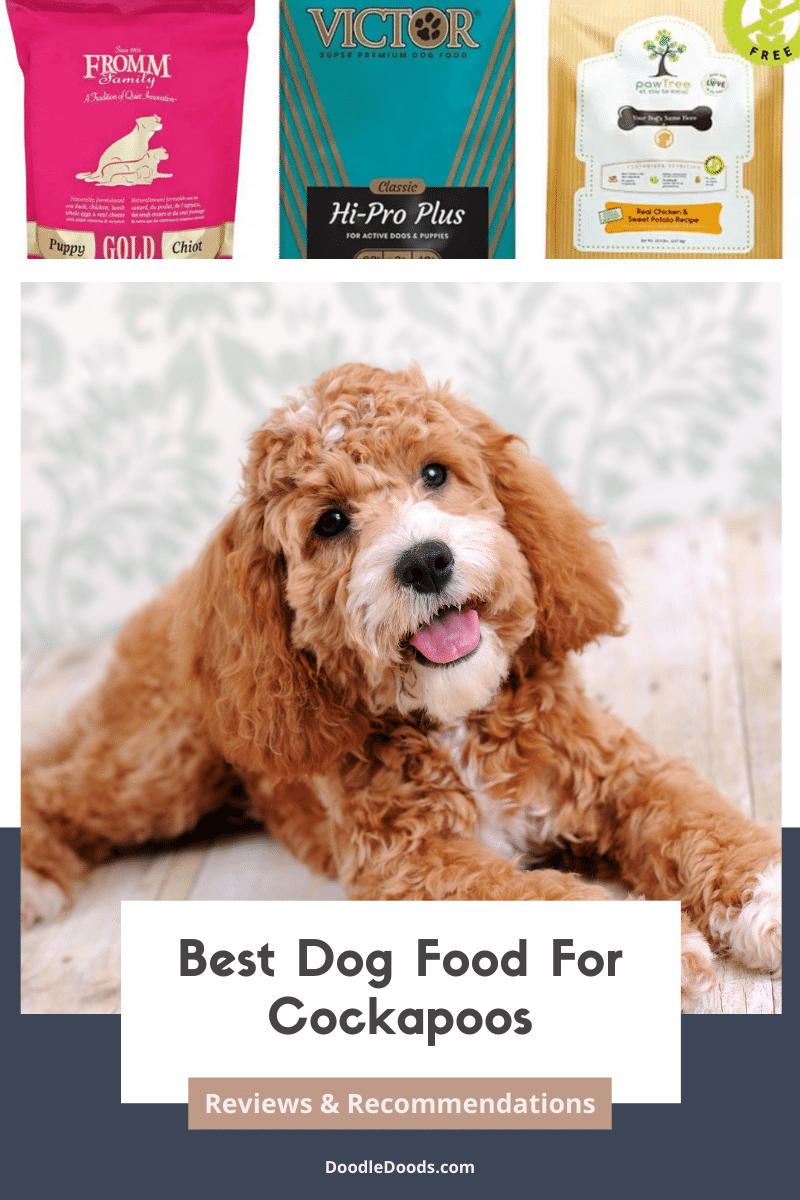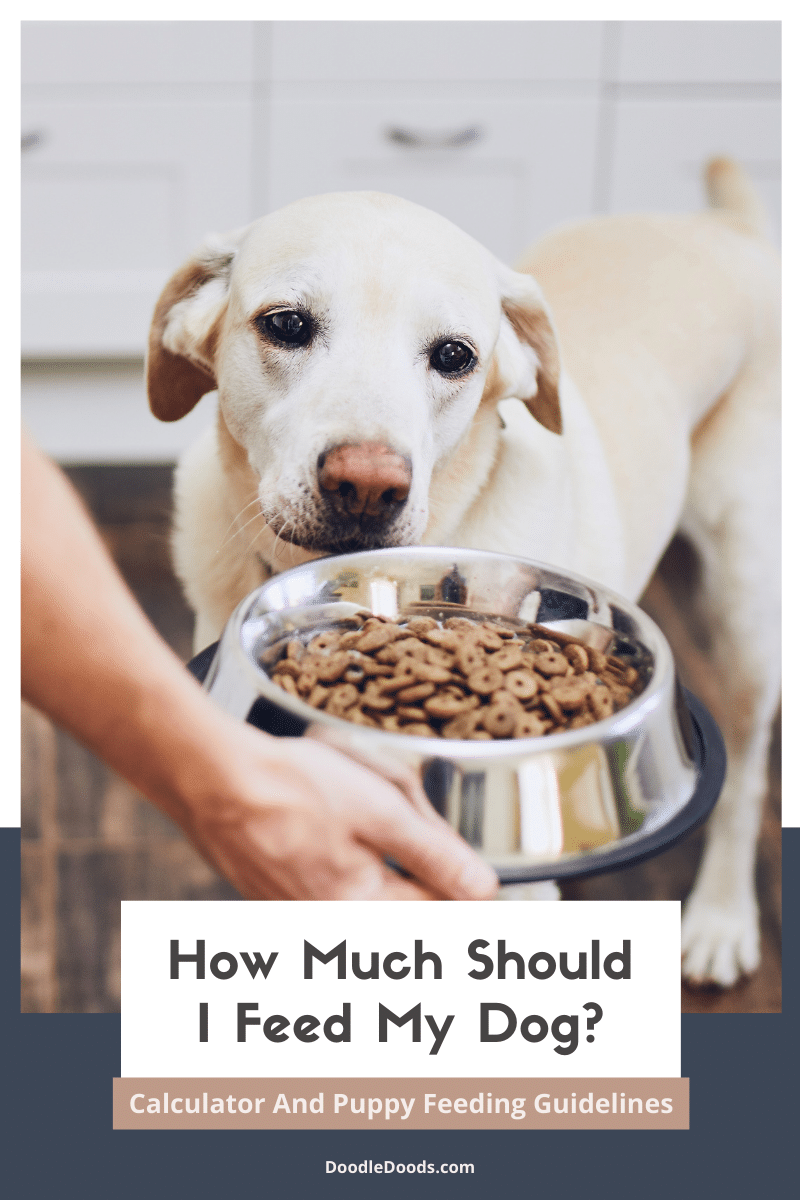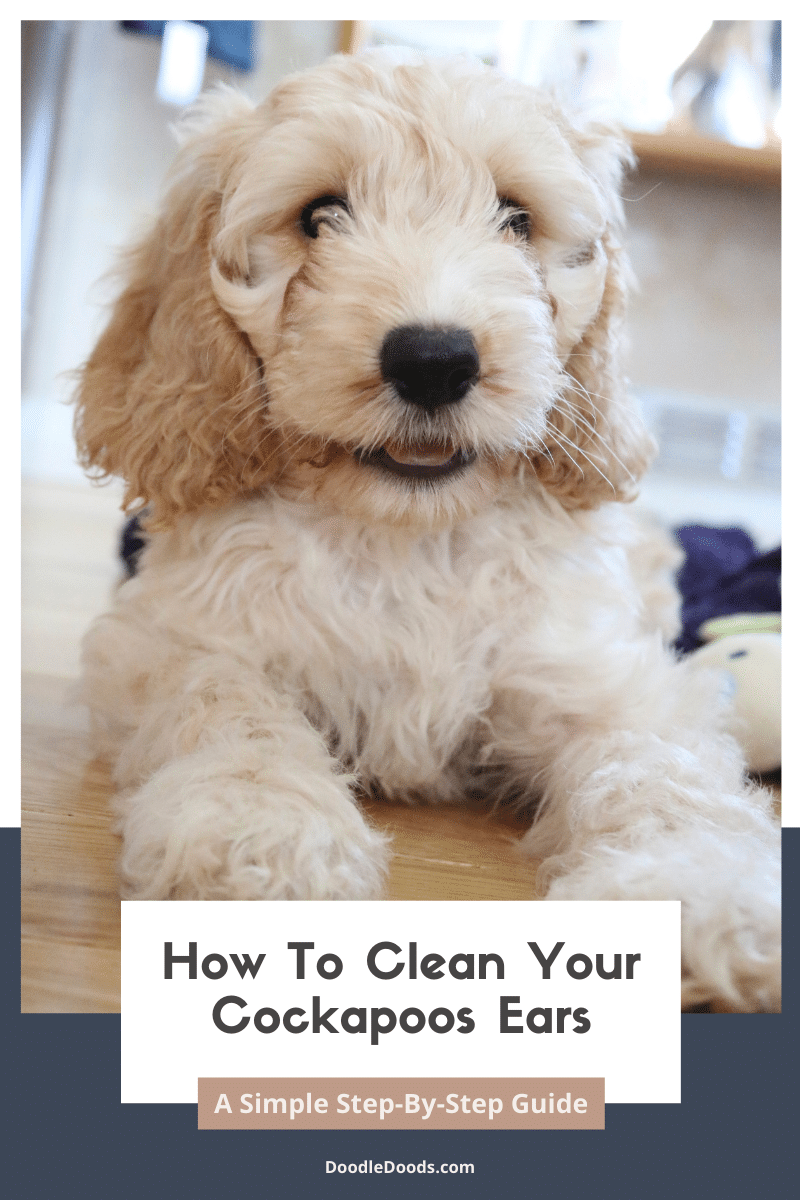When you’re thinking about adopting a dog, there are a few things you’ll need to consider. Alongside picking out the right breed for you, the one that will fit nicely into the lives of you and your family, you’re going to need to do a little research on how to best care for them. After all, you want your pet to live as long and as healthy a life as possible. Cue your curiosity about the Cockapoo lifespan.
While no one wants to think about their pup no longer being with them, it’s crucial that you are clued up on how long your dog might be around, what specific health issues they may grapple with throughout their lives, and the changes you’ll need to make to their diet and routine as they go from puppy to adult to senior dog. Here we will take a look at all that in relation to the lovely Cockapoo.
Table of Contents
- How Long Do Cockapoos Live?
- Individual Differences Between Types of Cockapoo
- Life Stages of a Cockapoo
- Common Cockapoo Health Problems
- Is My Cockapoo Showing Signs of Ageing?
- Extending the Cockapoo Lifespan
- Frequently Asked Questions About Cockapoo Lifespan
- Cockapoo Lifespan: Conclusion
How Long Do Cockapoos Live?
With a dog’s average life span being somewhere between 10 and 13 years, we know that Cockapoos, as smaller dogs, sit on the higher side of this. You can expect your Cockapoo to be around for a goodly long, 12 to 15 years. However, there are numerous reports of these pups exceeding 20 years even!
Individual Differences Between Types of Cockapoo
| Different Cockapoo Types | Average Expected Lifespan Males | Average Expected Lifespan Females |
| Maxi Cockapoo | 10 – 12 years | 10 – 13 years |
| Miniature Cockapoo | 12 – 14 years | 12 – 15 years |
| Toy Cockapoo | 13 – 15 years | 13 – 16 years |
| Teacup Cockapoo | 14 – 17 years | 14 – 18 years |
Alongside care, your Cockapoo’s size can have a significant impact on how long they are around. Smaller canines tend to outlive larger ones, as is often the case within species. Experts suggest that this is because bigger dogs age more rapidly. Basically, their fast growth and eventual size put rather more of a strain on their physiological processes. Essentially their bodies wear out faster.
This is good news for the small-to-medium Cockapoo. However, there can also be differences in even these dogs due to the fact that they come in four distinct sizes (Maxi, Miniature, Toy, and Teacup) based mainly on the Poodle that was used in the breeding. The Maxi Cockapoo, with their Standard Poodle parent, weighs over 25 pounds and stands between 16 and 22 inches to the shoulder. The Teacup Cockapoo (usually a multigen dog) weighs less than 6 pounds and is under 10 inches in height to the shoulder.
So the size differences here are quite substantial and do make it more likely that the smaller Cockapoos will outlive the larger ones. That being said, you need to be careful when looking to get any kind of Teacup dog. The breeding practices used to create such miniature pups don’t always ensure their best health. Many facilities breed such puppies using litter runts. Such dogs are far more susceptible to health issues than their more regular-sized siblings.
However, size isn’t the only factor at play here. Your Cockapoo’s life expectancy will also be determined by various environmental aspects such as food, exercise, happiness levels, and how quick you are to notice when things do start to go wrong. Gender is another distinction, with females living around a year longer than males, on average. Neutering your pup can also increase their longevity and make behavioral issues less likely too.
Life Stages of a Cockapoo
Cockapoos move through two very distinct life stages: puppyhood and adulthood. Within these stages, there will be clear differences in their behavior towards the start and end as they mature.
Puppyhood
From birth to 6 months, Cockapoos are considered to be puppies. At this stage, they are learning all about the world. Early, careful socialization is as vital for their wellbeing as the right nutrients are for the tremendous amount of growth that will happen now. Your fur-baby will reach at least half their adult weight in this time and achieve around three-quarters of their mature height. A puppy formula rich in calcium and other essential minerals is vital to supporting this. You’ll also have to deal with teething here.
After that, and up until the age of 18 months, these dogs are adolescents. At this time, your pup will reach sexual maturity and their full height too. They may, however, continue to look all lean and leggy as they continue to gain weight, and most importantly muscle mass. You mustn’t exceed manufacturer feeding guidelines as they could really start gaining unnecessary pounds. As is the case with human adolescents, this will be the age when your pup starts pushing boundaries to see what they can get away with. Stay firm with training.
Adulthood
Up until the age of 3 years, Cockapoos are considered young adults. You will have switched them over to an adult food formula and up their exercise levels. While your Cocka may still often act like a puppy, they will overall be much calmer and more willing to go with their training in this stage. You shouldn’t be dealing with too many health issues at this time. The main reason for vet trips right now (aside from regular checkups) will be (hopefully) minor injuries from them just being their curious, energetic, doggy selves.
After that, these pups can be thought of as regular adults until they are somewhere between 8 and 10 years of age (the bigger they are, the younger this will be). At this age, they become seniors and have progressively different needs. You will need to keep a closer eye on their health and be on the lookout for signs of them slowing down. They will become increasingly vulnerable to degenerative diseases, joint pain, and more. Alongside switching to a senior food, you might want to up the frequency of their vet checks.
Common Cockapoo Health Problems
Cockapoos benefit from the wider gene pool that being a hybrid dog gives them. This makes many genetic conditions much less likely than they are in purebred pups. In addition to this, if you purchase your puppy from a responsible breeder, you can rest assured that they will have conducted a battery of tests to ensure you are getting a puppy that is in the very best of health right from the beginning.
However, not every issue is genetic, and not every condition is as easy to predict. Cockapoos could still end up with health problems, but most of these tend to be highly treatable if detected early enough. That’s why it’s a good idea to schedule your pal in for regular checkups with the vet. In this way, they can get to know your dog and more easily pick up on any changes in their appearance or behavior that could indicate they are unwell. Common problems include:
- Ear disorders such as bacterial and fungal infections that are often found in droopy and hairy, eared breeds like Cocker Spaniels and Poodles.
- Eye problems, including progressive retinal atrophy, a degenerative disease that impacts sight and is often found in Cocker Spaniel lines.
- Gastrointestinal disorders like gastric dilatation-volvulus (GDV), more commonly known as bloat. This is seen mainly in larger dogs such as the Standard Poodle.
- Skin issues such as allergies which are one of the most common causes of itchiness, especially in sensitive Poodles.
- Hip and knee defects like patellar luxation – a painful movement of the kneecap and hip dysplasia – degeneration of the hip or elbow joint found in many breeds, big and small.
Is My Cockapoo Showing Signs of Ageing?
You may not be keen to watch for signs that your darling Dood is getting along in years, but it is a vital part of dog ownership to identify their changing needs. With the Cockapoo, be on the lookout for a general slowing down, sleeping more often, and more frequent toileting. These are all natural side effects of aging and are generally nothing to worry about.
Such signs don’t necessarily indicate that your pooch is on death’s door, simply that they might need a little more help and support than before. Raised beds, specially designed ramps, and certain supplements can all help keep your pet comfortable and feeling good well into their golden years. If you think, though, that their wellbeing is being affected in any way, then you should chat with your vet.
You should also consider taking your pet for a checkup if you notice any of the following: difficulty sleeping, stinky breath, accidents around the house, limping, lumps under the skin, a loss of hearing, or significant changes in behavior (especially snappiness, confusion or anxiety). These could all be signs of an underlying problem such as a degenerative disorder, pain, discomfort, or canine dementia.
Extending the Cockapoo Lifespan
Now that we have covered all the various stages and changing needs of your Cockapoo, let’s take a look at the very real things you can do to support their health and ensure they are with you for a good long time.
Feed them a suitable diet for their life stage
While all Cockapoos have somewhat similar nutritional needs, and the amount of feed you give your pup will depend on their size and activity level, there are also different types of kibble aimed at canines of varying life stages. These foods are adjusted to ensure your pooch gets enough of the good stuff to keep them happy and healthy, including sufficient protein, fat, and an assorted of vitamins and minerals that help the body in different ways. You need to ensure you pick up the right formula for your pet’s breed (mostly based on whether they are a toy, small, medium, large, or giant dog) and their specific life stage.
Foods aimed at puppies generally contain a larger number of calories (especially protein-based ones) to support their rapid growth. These also contain higher amounts of calcium, omega-3, and other nutrients that support development. At the other end of the scale, senior foods have fewer calories to reflect your Cockapoo’s more sedate lifestyle and reduce the risk of obesity. They also contain certain supplements that help protect bones and joints against strain and damage and help ward off conditions such as arthritis. Whatever food you opt for, make sure you keep your dog at a healthy weight to reduce the risk of heart problems, among other things.
Make sure they get plenty of exercise
With two working breed parents Cockapoos, even little ones, require a little more exercise than your everyday lapdogs. Adult pups should be taken out at least twice a day for around 30 minutes. In between that, they should be given the opportunity for some outdoor time and, if possible, some games of fetch, tug, or whatever else makes them happy. This keeps them both physically and mentally stimulated, which helps prevent them from becoming bored and unhappy. Toys are great for when you just don’t have the time to play with your pal.
Exercise is the other side of keeping your pet in top physical condition. Without this, even if you are feeding them the right amount of food for their size, they can easily start to pile on the pounds. Obesity in Cockapoos is a common issue, and most people are unaware that their pup is overweight. The American Kennel Club (AKC) recommends using the feel and prominence of their ribs as a guide. “If your dog’s ribs aren’t extremely prominent and you can easily feel them without having to press hard, then the dog is fit. For overweight dogs, it’s very difficult to feel their ribs because there is too much fat in the way.”
Keep them safe at all times
The biggest risk for Cockapoos is injury. This could pose a serious threat, especially if your four-legged friend is on the smaller side. While hazards come in many forms – road traffic, other dogs, and animals, dangerous terrain…one of the most significant is children. While kids and dogs may seem like one of the best pairings out there, they both love to play and have a good time. It’s not always easy for a young child to understand that they may be loving their new little pet a bit too hard.
While it’s crucial that you always supervise your children around any animal, even your family dog, it’s also a good idea to teach your kids the right way to behave around them. For instance, you should encourage your children to get down to the dog’s level rather than attempting to pick them up. You should also wise them up about all the signs that a canine might be unhappy because even the calmest, most loving of Cockapoos could easily lash out when upset.
Quickly take care of any health problems
We’ve touched on this point a couple of times already in this article, but this is a point that really can’t be stated enough. The quicker your vet is able to identify any health issues that your Cockapoo has, the more effective the treatment is likely to be. That’s why it’s vital to listen to your gut on this one and get your babs down to the vet if you suspect that anything might be wrong with them. You might not notice any specific symptoms, just perhaps some changes in their behavior. It’s always better to be safe than sorry.
You should also speak to your vet early on about any vaccinations or treatments that might benefit your pet. Getting these in good time could save you money, not to mention heartache in the future. They are also the best source of advice for behavioral issues. They may be able to recommend supplements or medicine alternatives for the treatment of problems such as anxiety. As your Cockapoo starts to noticeably age, you’ll probably need to step up these visits as health problems become much more likely at this stage.
Brush, wash, and trim them regularly
While it may not be as apparent as diet and exercise, for instance, taking good care of your Dood’s coat can really make a world of difference to their general health. Cockapoos (especially first-generation ones) can inherit two wild different coat types: the Cocker Spaniel’s straight, silky one or the Poodle’s curly, wiry one. Alternatively, they could end up with hair that sits somewhere in the middle of these two extremes. Whichever it is, your pup will need DAILY brushing to prevent knots and tangles from developing into matting.
The importance of this lies in what can happen beneath these mats. Bacteria and fungus can run rampant, causing dry, flaky, inflamed skin that not only itches like crazy but can do a serious number on your pup’s immune system. Beyond that, these nests of hair are a perfect place for parasites such as fleas and tics to hang out undetected. If you lack the time for intensive brushing each day, then you should keep your pet’s coat short, either through regular visits to the groomers or by learning to handle a pair of clippers at home.
Frequently Asked Questions About Cockapoo Lifespan
Relatively speaking, Cockapoos are pretty healthy dogs. They benefit from something known as hybrid vigor. Basically, mixed breed pups tend to be healthier than pedigree ones. So, on average, they tend to live somewhere between 12 and 15 years. The exact number will depend on their size (with smaller dogs generally outliving bigger ones), their genes, and having their diet, exercise, and various other needs well met throughout their lives.
That hybrid vigor gives Cockapoos a boost in the health stakes, and so does purchasing them from a reputable breeder. Do this, and you can significantly reduce your dog’s risk of inheriting a genetic disorder. Keeping them at a good weight can help prevent many kinds of degenerative conditions. Overall though, Cockapoos don’t generally have that many health problems, and the ones that they are prone to are usually fairly treatable, especially if you catch them early on.
The exact amount of exercise your Cockapoo needs will be determined somewhat by their size, age, and life stage. As you might expect, larger, younger (adult) dogs require the most exercise. You could be looking at around an hour a day of dedicated park time, although more (within reason) would definably not be a bad thing. As they start to get on in years, they will likely slow down a little and prefer more couch time, but you should still encourage them to move about as much as you can to keep their joints nicely loose.
While not unheard of, it is a rare kind of Cockapoo that would live to the grand old age of 20. More than likely, your pup’s lifespan will fall somewhere between the 12 and 15-year range. That being said, with the right kind of care, diet, and exercise routine, it certainly is possible that your Cockapoo could well exceed this estimate. It can’t hurt to try!
Outside of motor vehicle accidents which take a scary number of our pets from us, Cockapoos are more susceptible than other breeds to cancer and blood problems, eye issues, and ear infections. So these are all things to look out for. Another common reason Cockapoos die early is because of obesity and the associated extra risks it brings for dogs.
As smaller dogs, Cockapoos are perhaps less likely to suffer from degenerative joint issues as compared with larger and giant breeds, but they are still a factor. Picking a senior food that contains the right kind of minerals to help with this is a good way to ensure that your Cockapoo stays happier and healthier for longer.
Cockapoo Lifespan: Conclusion
The thought of a beloved pet passing can be a most upsetting one, and that’s why no one really likes to spend too long thinking about it. That being said, watching out for signs of aging is as an essential part of being a pet parent, as providing them with the right kind of care and nutrition to keep them happy and healthy. Having a good understanding of each part of your pup’s life allows you to adjust what you are doing for them so that they are able to give you many years of loving companionship.
Learn How to Care for Your Doodle Puppy!

Perfect for first-time Doodle parents, get ALL your questions answered, including questions new Doodle parents don’t even think to ask.
Plus, get $700 worth of Bonus Materials for FREE, including:- Doodle Parenthood Community and Support Group ($190 value)
- Doodle Puppy Growth Tracker ($20 value)
- EMERGENCY Cheatsheet: When To Call The Vet Immediately ($50 value)
- HELP! Button ($145 value)
- And SO MUCH MORE!
The information on this page is for informational purposes only. It is not intended to be a substitute for qualified professional veterinary advice, diagnosis, or treatment. Always seek the advice of your veterinarian or other qualified animal health provider with any questions you may have.

